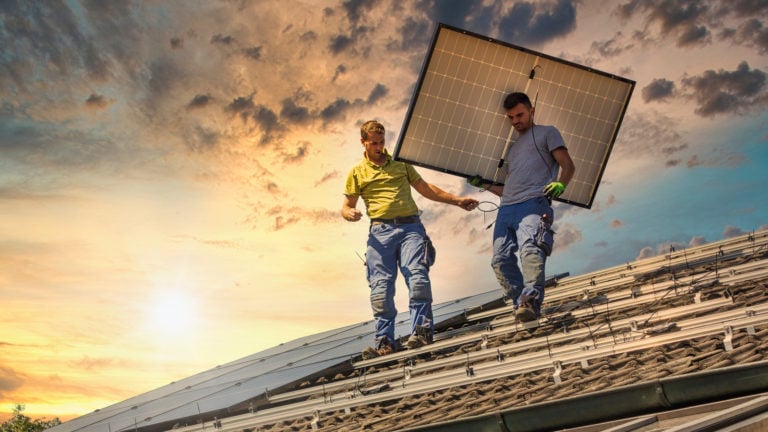Solar stocks had a great year so far, with the 2022 Inflation Reduction Act including multiple incentives for homeowners to jump on the solar bandwagon. Provisions that included tax credits led to a 40% jump in U.S. household solar installation.
The tide may be changing though. Recent human rights allegations mean dark clouds are forming on the horizon. At the beginning of this month, human rights experts reported disturbing news. Several major solar companies of source materials from Chinese regions have substantial human rights violations, including forced labor, the U.S. asserts.
In June, the U.S. banned products and materials sourced from the region. Solar stocks dipped on the news, but rebounded as management assured investors that they weren’t overly affected by the ban.
The new report sheds light on solar stocks, though, and indicates that the “vast majority of modules produced globally continues to have exposure” to the region. Ultimately, this could mean massive trouble for these solar stocks.
JinkoSolar (JKS)

JinkoSolar (NYSE:JKS) was called out by name in the report as one with excessive exposure to materials manufactured by forced labor.
The Chinese company maintains production capacity in the United States and East Asian countries like Vietnam. Yet it still relies heavily on raw materials from the region.
Critically, JinkoSolar is already on the government’s radar as Feds raided a United States-based factory and sales office in May. The blitz was based on violations of the import ban. JinkoSolar pled innocent, claiming to be “committed to operating in accordance with the highest ethical standards and adhering to the laws and regulations of the countries where it operates”.
Since January, the stock is down 6%. Still, with a 10x price-to-earnings ratio, this stock has further to fall. Its reliance on overseas material sourcing means it must reckon with higher production costs elsewhere or close up shop.
Canadian Solar (CSIQ)

Canadian Solar (NASDAQ:CSIQ) is another solar stock
accused of using forced labor in its production processes. Although the company’s name may imply a heavy North American labor force, only 3% of its workers are in Canada. Instead, 79% are in China.
The recent report highlighted critical production shortfalls in North America that mean the firm is likely still sourcing materials from banned regions. Like JinkoSolar, Canadian Solar’s stock was raided in 2021 based on these allegations. Still, if the new report is correct, it means Canadian Solar is still executing shady business practices abroad.
Canadian Solar’s stock is up 10% since January despite ongoing allegations, meaning the storm hasn’t yet hit this solar stock. Analysts seem to think Canadian Solar’s future is bright, though, with many recommending either Buy or Hold. This bullish sentiment means selling or shorting the solar stock is a contrary position. But investors concerned with their impact should step back to consider whether the human rights downside is worth potential upside gains.
iShares Global Clean Energy ETF (ICLN)

Ultimately, it’s difficult to determine the amount and type of solar stocks that are actively involved in banned regions using forced labor. The myriad of holding companies and private firms engaged in solar production mean it’s impossible for retail investors to untangle the global web.
Pinning down companies engaged in bad business practices, coupled with industry-wide allegations, have nervous investors avoiding iShares Global Clean Energy ETF (NASDAQ:ICLN). The ETF is primarily composed of solar stocks and, as more news breaks and federal investigations pan out, the ultimate fallout will likely cast a wider net than expected.
There’s doubtlessly a critical place in our future for widespread solar use. Still, with labor concerns and even negative environmental effects reported during production, it might be best to steer clear of solar for now.
On the date of publication, Jeremy Flint held no positions in the securities mentioned. The opinions expressed in this article are those of the writer, subject to the InvestorPlace.com Publishing Guidelines.
